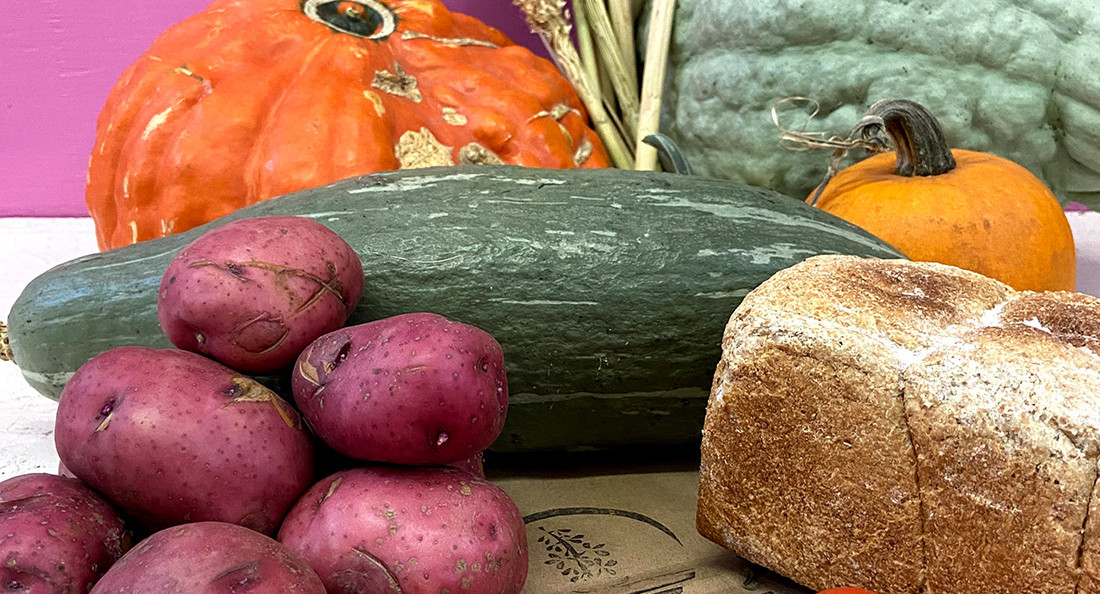City of food (in)security
Amid COVID-19, more Winnipeggers struggle to afford their next meal
It’s a prerequisite for nearly everything we do in life. Yet, increasingly, more Winnipeggers face uncertainty around whether or not they’ll be able to bring enough food to their tables.
In 2018, one in eight Canadian households were food insecure. Since the outbreak of COVID-19 in Canada, that ratio has jumped to one in seven. For Indigenous people living on northern Manitoba reserves, that number jumps to a disturbing 60 per cent of households.
As COVID-19 brings on mass layoffs and financial uncertainty, it is likely that more and more have either fallen or are bound to fall under this category.
Organizations and community members across the city have been working to mitigate food insecurity. Food bank veterans like Winnipeg Harvest abruptly adapted their services to meet an increased demand, while others, like the Serve the People Food Delivery Initiative, arose as a response to the adverse effects of the pandemic.
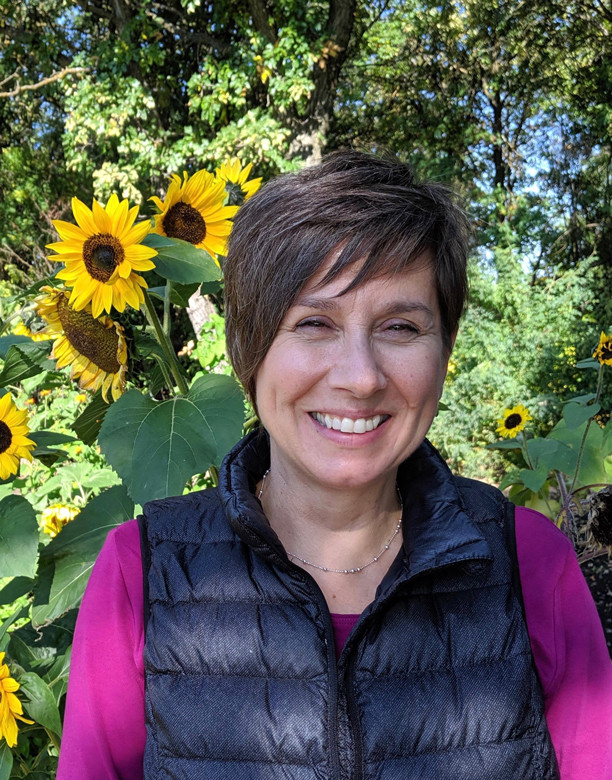
Dr. Joyce Slater is the project lead of the Winnipeg Food Atlas, which maps food insecurity in the city.
Beyond the pantry
In February of this year, the Winnipeg Food Atlas was released by a team of researchers and community partners to bring a visual representation of food insecurity and other related issues to the public.
Dr. Joyce Slater, a professor of community nutrition at the University of Manitoba and the project lead of the Winnipeg Food Atlas, says the goal was not only to bring attention to the issue, but also to provide a data framework for community organizations to reference.
“Food insecurity is a major issue in our province. It’s become even more acutely so since COVID,” Slater says. “We want to bring empirical evidence to show its impact.”
Just under one in 10 Winnipeggers live in what are known as food deserts, characterized as areas where residents have limited access to fresh, nutritious and affordable food. As reflected on the Food Atlas, the issue affects lower-income communities, like Winnipeg’s inner city, the most. However, pockets of suburban deserts exist in areas like St. Vital and Waverley West.
Still, food insecurity continues to affect marginalized populations most acutely. Single parents, newcomers and Black and Indigenous populations are among the most disproportionately affected, according to Slater.
“If you’re low-income, and you’re having trouble accessing food, that’s incredibly stressful,” Slater says. “It might not be complete food deprivation, but it’s the inability to plan ahead and feel confident you can look after your family.”
Food insecurity goes beyond the issue of not having enough to eat. It is undermined by a host of other factors and exacerbates, or brings on, other issues.
“We know that when people don’t have enough food, they also are going ... without a lot of other things as well,” Katie Anderson, the development co-ordinator at Food Matters Manitoba, says. If one can’t afford to put enough food on the table, she says other essential items like medications and children’s school supplies are also out of reach.
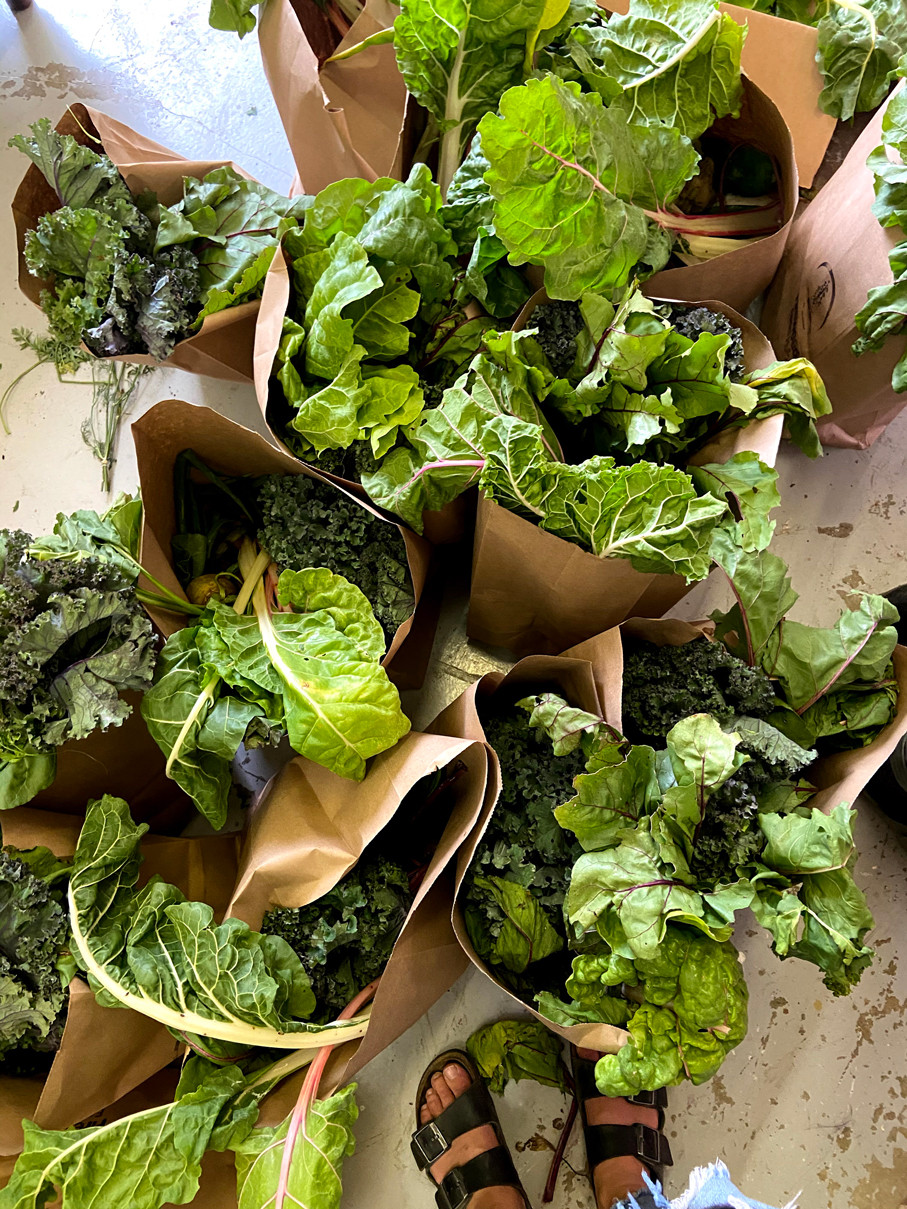
"There was a large gap that we saw in services. That's where the delivery model came from."
-Bethany Daman, MAS Winnipeg
The changing face of food banks
At the beginning of the COVID-19 outbreak in Winnipeg, Meaghan Erbus, the advocacy and impact manager at Winnipeg Harvest, says the organization was rapidly mapping out a safer way of serving their clientele.
“With COVID, we’ve had to close our building to the community in some respects,” Erbus says. While face-to-face interaction has been limited, Winnipeg Harvest has moved to a pre-boxed model, where their food-bank users are given a hamper of perishable and non-perishable food items.
She says they’ve also had to adapt to a 30 per cent increase in people who use their food-bank services since the beginning of the pandemic.
“We’ve noticed a change in our clients and our community in terms of needing more help,” Erbus says. “We had to move from a biweekly food-bank appointment to a monthly food-bank appointment to be able to accommodate for the increase in clients.”
As more clients began to seek their services, Erbus says Winnipeg Harvest polled a number of them to ask what brought them there. Job loss was a common theme among many either seeking their services for the first time or returning after a period.
To better respond to the needs of their clients, she says Winnipeg Harvest has been collaborating with other organizations to bridge connections between resources.
“It’s been really beneficial to be able to lean on and be supported by other community organizations,” Erbus says.
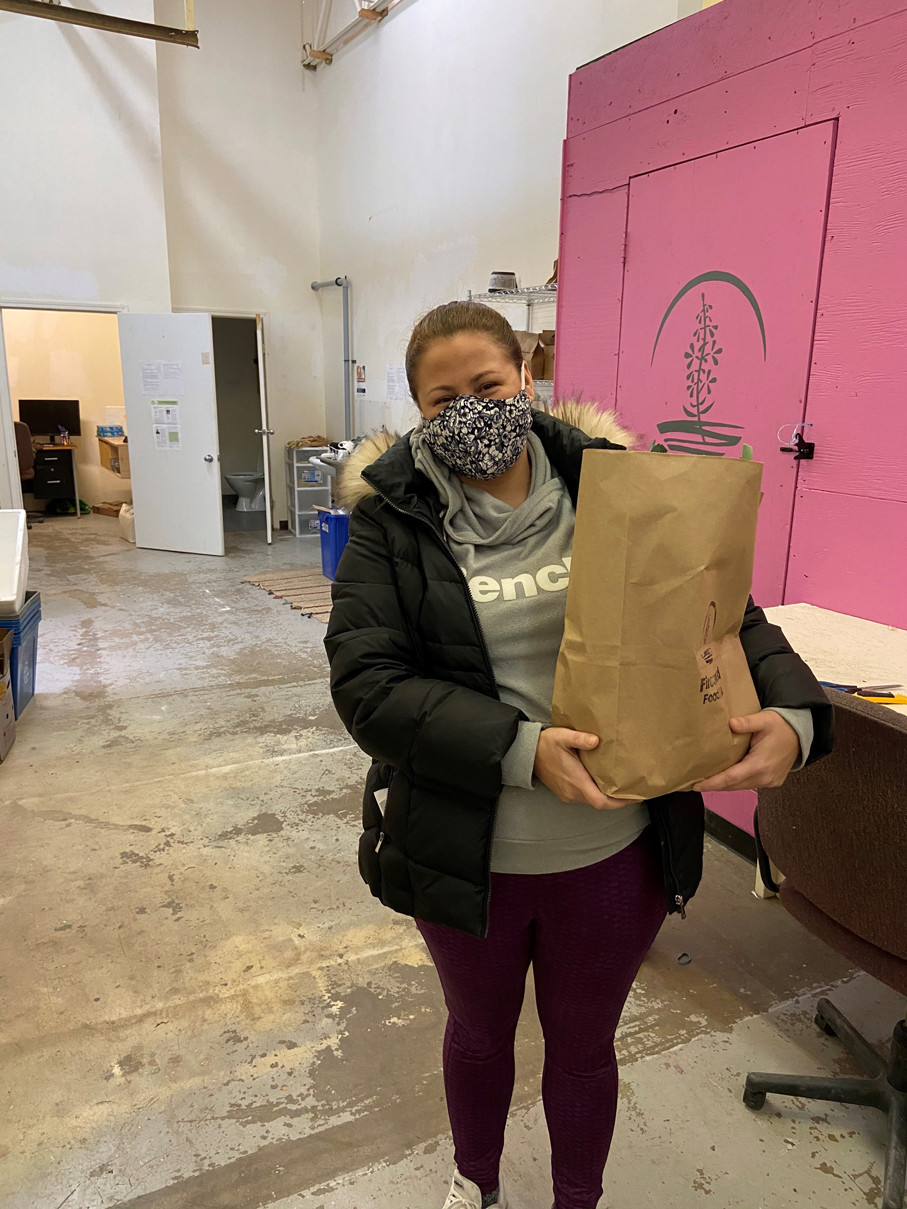
Volunteer drivers Kasandra Rudge (above) and Silas Koulack (below) from MAS Winnipeg
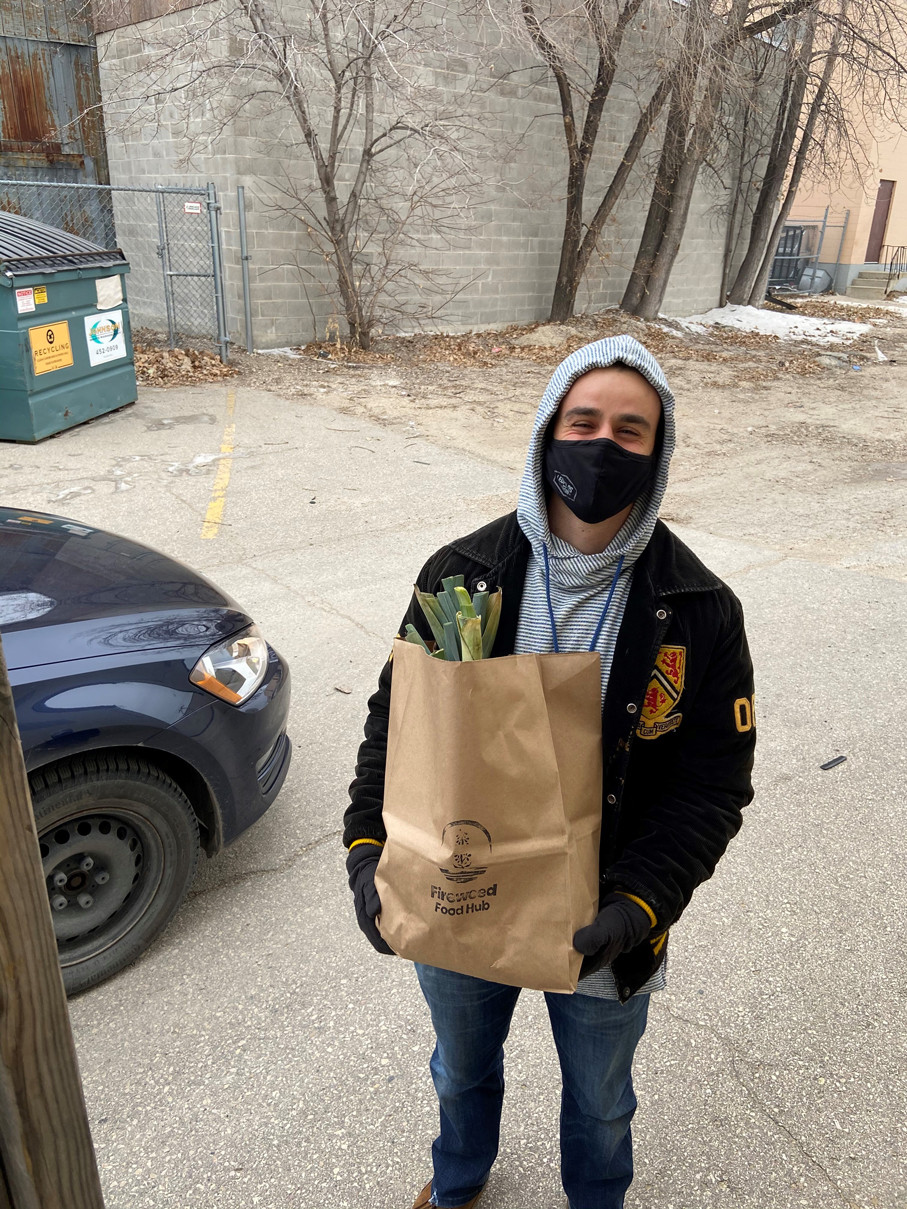
‘This is solidarity, not charity’
Combating food insecurity is not limited to the efforts of non-profit organizations. Less formalized efforts have also been made to help food-insecure Winnipeggers, notably through mutual aid.
The Mutual Aid Society (MAS) Winnipeg Facebook group comprises members seeking and offering assistance. The Serve the People Food Delivery Initiative is a local project affiliated with the group. Bethany Daman, the initiative’s volunteer co-ordinator, says witnessing the community come together has been heartwarming.
“Seeing the community members come together in that space I think is just very uplifting involvement for anyone to have in Winnipeg right now,” Daman says.
Every Thursday, the initiative’s volunteer drivers deliver hot meals and food boxes to Winnipeggers in need. Daman says it came as a response to some of the precarious circumstances COVID-19 brought to communities, and as a way to formalize some of the work that the MAS Winnipeg Facebook group was doing informally to combat food insecurity.
“There was a large gap that we saw in services. That’s where the delivery model came from, and there were a lot of people willing to assist with that,” Daman says. “On average, we’re getting food to just under 100 homes a week.”
When it comes to those seeking their services, Daman says the initiative stresses having a “no-questions-asked” model. In the time of COVID-19, Daman notes that some may lack safe transportation to a food retailer, others may have to isolate, and others facing health risks may not feel safe entering a grocery store. Whatever the reason, Daman says Serve the People does not inquire why.
“We always talk about how this is solidarity, not charity,” Daman says. “There's no questions asked as to people’s current circumstances. If they have expressed a need to have food delivered to their house, we're not asking why."
“It’s very much just people helping people,” Daman says.
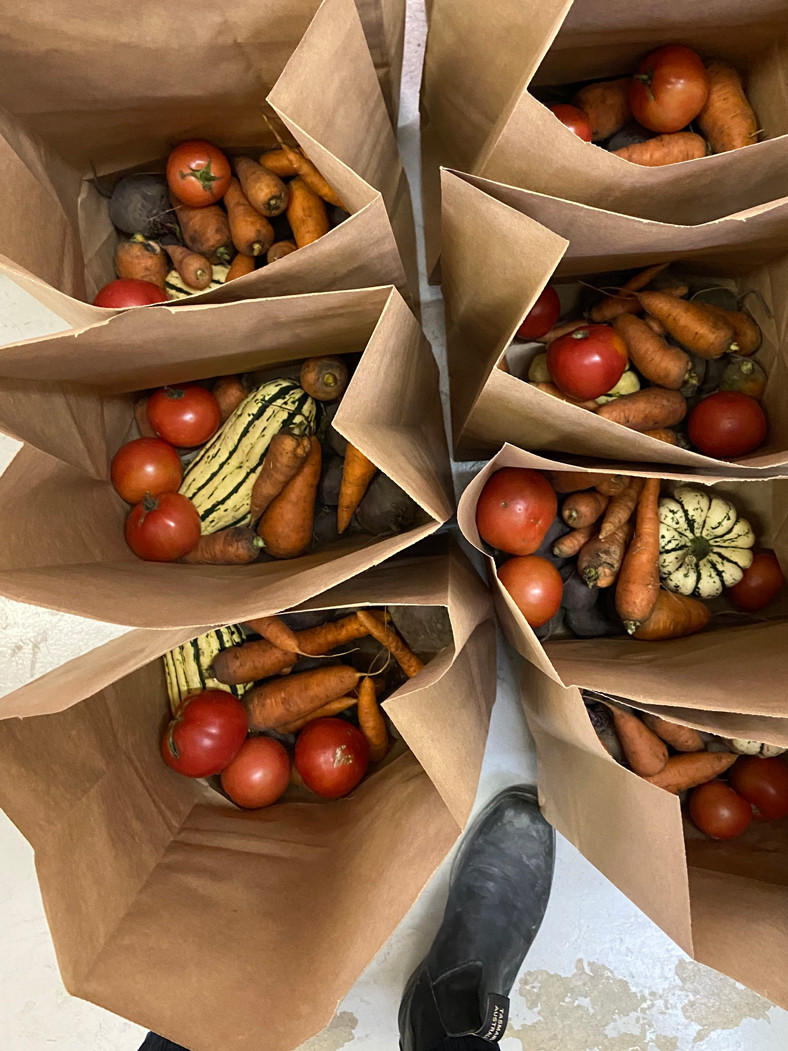
"We had to move from a biweekly food-bank appointment to a monthly food-bank appointment to be able to accommodate for the increase in clients."
-Meaghan Erbus, Winnipeg Harvest
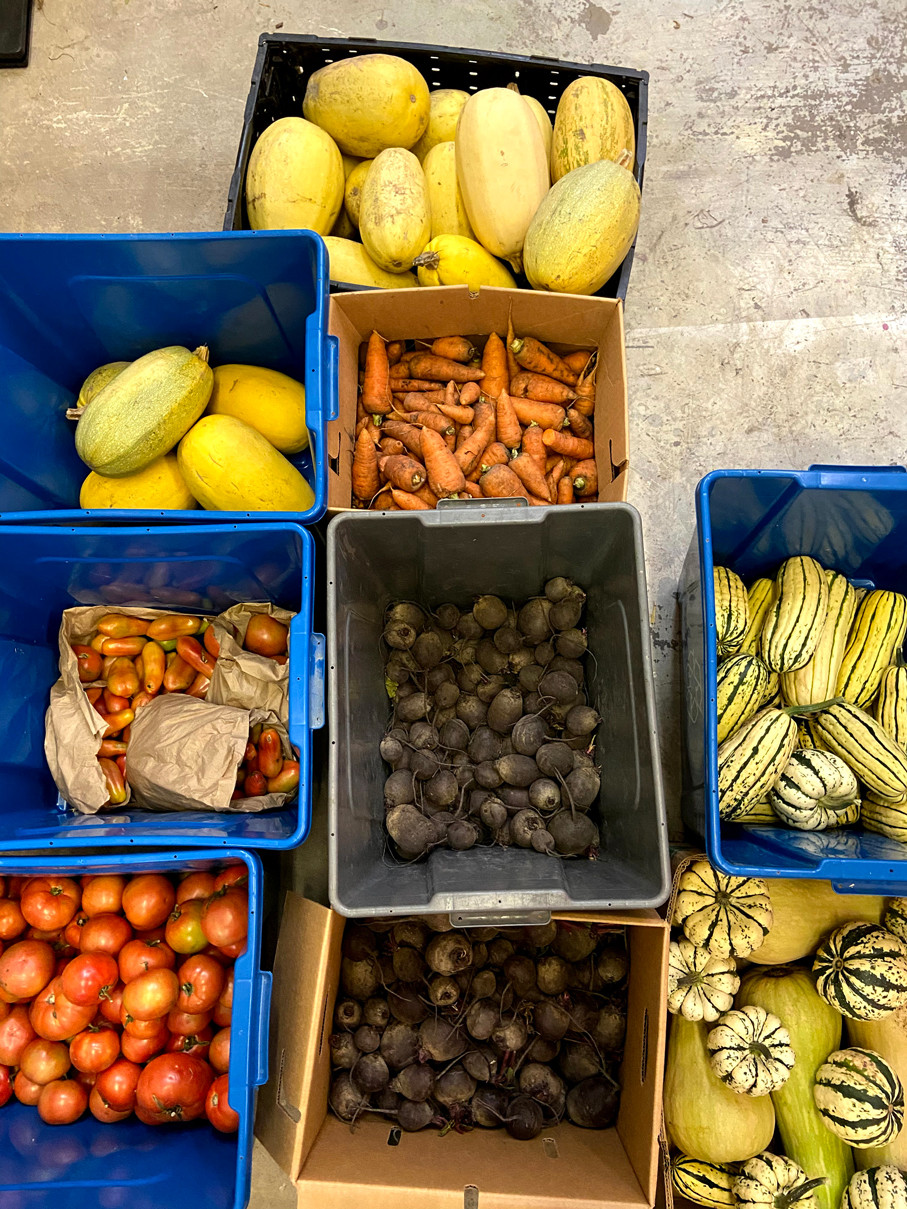
Food insecurity "might not be complete food deprivation, but it's the inability to plan ahead and feel confident you can look after your family."
-Dr. Joyce Slater, Winnipeg Food Atlas
Tending to the roots harvests solutions
As it turns out, the root cause of food insecurity in Winnipeg has little to do with food at all.
“When you’re talking about food security, and you’re talking about people having sufficient or adequate food, it’s about income,” Anderson says. Food banks and other initiatives are essential, but ultimately what Anderson calls a “stopgap measure.”
When the Canadian Emergency Response Benefit (CERB) was unveiled, Anderson says there was a temporary “blip” in food security. She argues that to truly combat food insecurity, a basic income is needed.
Ensuring that all Winnipeggers have sufficient income to dedicate to a consistent supply of nutritious food could decrease the demand from food banks and other charitable models. While food banks may have varying rates of donations and resources, a basic income could be a more sustainable, long-term solution to food insecurity.
Having connected with many of the people who seek the services of Winnipeg Harvest, Erbus also advocates for higher wages as an antidote.
“There is a relationship between income and food security,” Erbus says. “Whatever we can do to increase the incomes of low-income Manitobans would benefit them.”
On the programming side of things, Anderson says Food Matters Manitoba is working with a younger generation to build awareness and envision policy solutions early on.
Currently, Food Matters Manitoba runs a program called Beyond Our Plate to engage high-school-aged youth on matters of food security through a mock food policy council. Anderson says the goal is to make youth aware of the presence of food insecurity in their communities in hopes of building a generation of food-security advocates.
“There will be students in a class who have firsthand experience of what food insecurity feels or looks like, and others may not,” Anderson says. She says that Beyond Our Plate helps students not experiencing it directly understand just how close to home it is.
No one organization can compensate for all of the multidimensional issues that are parallel to the issue of food insecurity. For this reason, Daman sees a need for more organizations to collaborate with one another and fill the gaps in services they don’t have the capacity to provide.
“I think there’s a huge need for organizations to collaborate,” she says. “There’s a lot of great things being done, but there’s also a lot of disconnect between the different resources that are available.” She also advocates for the “no-questions-asked” model that Serve the People Food Initiative has adopted to be implemented more widely.
"There also are a lot of checks and balances that end up being quite challenging for people who don't necessarily fit the perfect mould, but are truly experiencing food insecurity,” she says.
COVID-19 has highlighted the broadening cracks in Winnipeg’s food-security issue. In the various responses to mitigate its effects, the resilience of community organizations, mutual-aid groups and volunteers persist, though a long-term solution is yet to be delivered to the doorstep.
Published in Volume 75, Number 11 of The Uniter (November 26, 2020)

